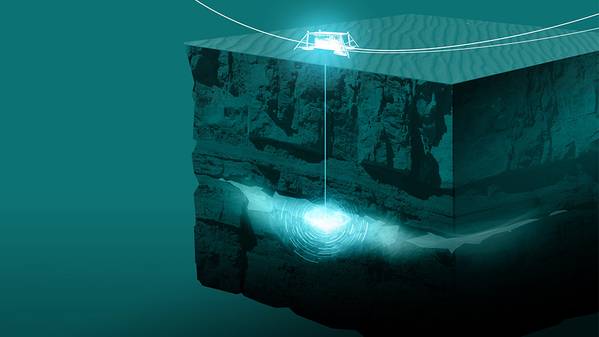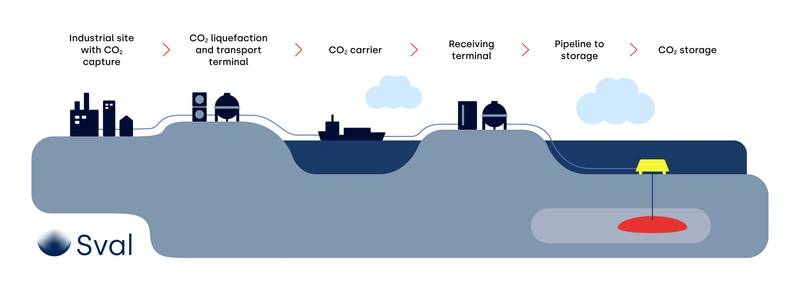
The Norwegian Ministry of Petroleum and Energy awarded one CO2 storage license in the North Sea to Sval Energi AS, Storegga Norge AS, and Neptune Energy Norge AS.
"Carbon capture and storage of large amounts of CO2 is important to reach our climate goals and maintain industrial workplaces in Norway and Europe. Awarding new licenses allows Norway to contribute an important role in establishing a commercial large-scale carbon capture for European emissions sources," said Terje Aasland, Minister at the Norwegian Ministry of Petroleum and Energy.
The carbon storage license, called Trudvang, is located east of the Sleipner East field in the North Sea.
According to Neptune Energy, the Trudvang area can store up to nine million tonnes of CO2 annually for at least 25 years – a total of 225 million tons – with analysis indicating the storage potential could be even higher.
Svak CEO Nikolai Lyngø said:“We are pleased to have been awarded this licence. Capturing and storing CO2 is important to reduce greenhouse gas emissions. We have already spent two years working on this opportunity and have identified an area under the seabed suitable for safe and efficient storage of CO2.”
The Trudvang project involves capturing CO2 from several emission sources in North-West Europe and then transporting the CO2 to export terminals. From there, the CO2 will be transported either via ship or pipe to the Trudvang location for injection and permanent storage under the seabed. Credit: Sval Energi
Credit: Sval Energi
Neptune Energy’s Managing Director in Norway and the UK, Odin Estensen, said: "We are pleased to secure our first CO2 storage license in Norway. The North Sea has great potential to become a hub for carbon storage, given the proximity to CO2 emitters and the geology which is suitable for CO2 storage.
“Neptune Energy was recently awarded three CO2 storage licences in the UK and we continue to progress our L10 carbon storage project in the Netherlands. Our ambition is to build a portfolio of carbon stores linked to our core areas in the North Sea.”
The storage reservoir is at a depth of approximately 850 meters in the Utsira formation.
The licenses are offered with a binding work program with installed mileposts that ensure fast and efficient progress, or the return of the areas if the licensees do not carry out the storage project, the Ministry said.
In the first phase, within the first two years of the license award, the companies are expected to acquire 3D seismic with the best available quality and resolution covering the storage complex and overlying stratigraphy; conduct G&G studies including 3D geo- and reservoir modeling; and conduct studies to evaluate leakage risk and injection strategy.
The one-year second phase, in the third year, envisions conceptual field development studies and the selection of preferred development concept.
In the fourth year, should they decide to proceed further, Sval Energi AS, Storegga Norge AS, and Neptune Energy Norge AS, are expected to prepare a plan for development and operation (PDO) and make a final investment decision.
Sval Energy is the license operator with a 40% stake, with partners Storegga and Neptune owning a 30% stake each.
"It is important that attractive storage areas are made available for companies with concrete industrial plans that involve a storage need. I am pleased to award these licenses to three new companies. We need more actors to strengthen the development of carbon capture as a new, important, commercial marine industry," says Aasland.
The authorities have reviewed applications from five companies after announcing one suitable acreage in January 2023.
Sval's Lyngø said: “Together with our partners we will mature the Trudvang project in accordance with the milestones and work program set out by the authorities. Our people have the expertise to realize Trudvang. The goal is to be able to store the first CO2 in the Trudvang licence towards the end of this decade.”